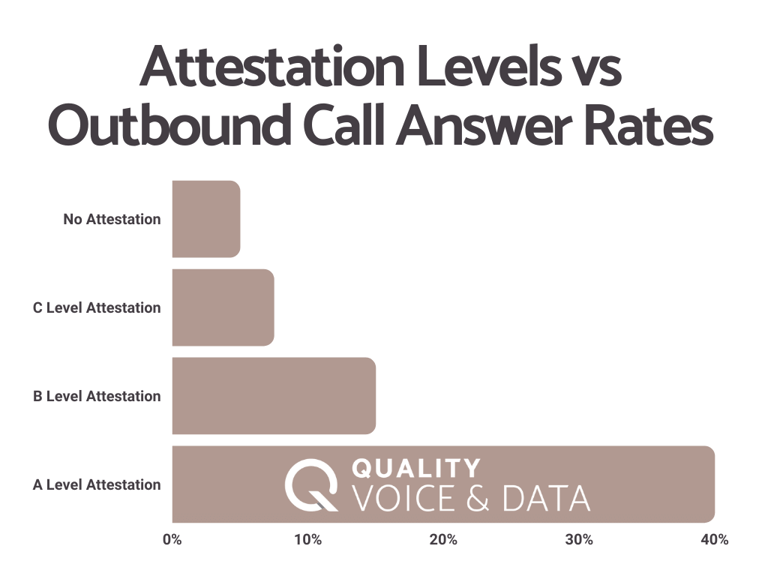Impact of STIR/SHAKEN on outbound call answer rates
The impact of STIR/SHAKEN has been substantial. Particularly, the impact on outbound call answer rates has been significant. After STIR/SHAKEN’s implementation by major telecom carriers on September 30, 2022, telecom carriers, dialer companies and companies that make a high volume of outbound calls have experienced challenges with the impact of STIR/SHAKEN implementation.
Larger telecom carriers have STIR/SHAKEN challenges
The STIR/SHAKEN standard is designed to operate natively in SIP, not legacy TDM. The challenge for larger carriers is upgrading their significant TDM network to SIP, which passes the Attestation. Anyone can insert an Attestation into every call. However, the TDM connections will strip away the Attestation before delivering the call to the Called Party. Setting up new direct SIP routes to the carriers that matter is a lengthy process. It can take up to a year or more. Utilizing a telecom carrier that is not STIR/SHAKEN will decrease your answer rate.
Some dialer companies have STIR/SHAKEN challenges
One reason that the impact of STIR/SHAKEN has been larger than expected is because not all dialer companies were ready for STIR/SHAKEN. Many dialer companies promptly implemented STIR/SHAKEN compliant telecom solutions for their clients. This means that outbound calls placed using the dialer receive the A attestation.
However, some dialer companies have been challenged with getting STIR/SHAKEN routes to deliver their calls. Some dialer companies still have gaps in delivering a solution that maximizes outbound call answer rates. Calls not digitally signed with an A attestation results in a higher rate of spam labeling and blocking. More spam labeling and blocking leads to a much lower call answer rate.
Companies that utilize a telecom carrier that is not digitally signing calls with an A attestation find that their outbound call answer rates are significantly lower. And it’s not always a black and white situation. Some telecom carriers are digitally signing, but without a direct route to each major carrier (AT&T, Verizon and T-Mobile), the digital signature may not help. If your calls are delivered with a STIR/SHAKEN A attestation, you will see a checkmark on each of the big three wireless devices.
The back story for STIR/SHAKEN
STIR/SHAKEN is the telecom industry’s solution for decreasing unwanted and junk phone calls. Robocalls are the number one complaint to the Federal Trade Commission and the Federal Communications Commission. To avoid the negative impact of STIR/SHAKEN on answer rates, telecom carriers must know their customers and provide an attestation when delivering a phone call to another carrier.
An A attestation means that the telecom carrier knows the customer, and knows that they are an authorized user of the Caller ID. B attestation means that the telecom carrier knows the customer, but does not have information about validity of the Caller ID numbers. C attestation means that the telecom carrier does not know the customer. C attestation means death for answer rates.

Quality Voice & Data was one of the first telecom providers to receive STIR/SHAKEN authorization. Our niche is providing services to call centers, particularly outbound call centers. We offer a suite of products focused on one thing: getting a high outbound call answer rate.
Dean Garfinkel is the President of Quality Voice & Data, an Authorized Shaken Service Provider enhanced telecom solutions provider to the telemarketing and call center industry. Dean’s passion for creating value-added solutions for his clients has resulted in numerous solutions which are industry-standard and used by most Fortune 500 call centers and their call center vendor partners. Dean can be reached at dean@qualityvoicedata.com or 516.656.5115.